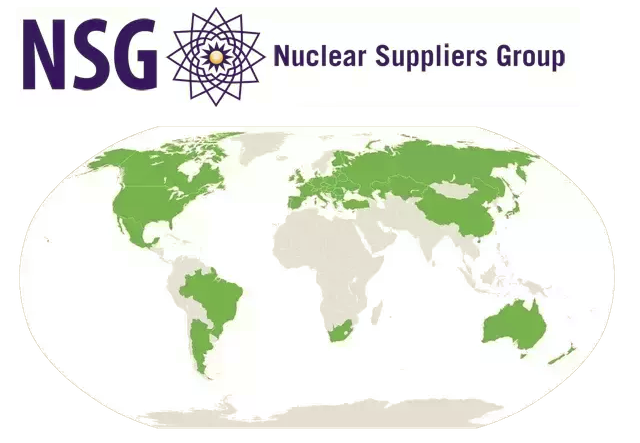About Nuclear Suppliers Group (NSG)
- NSG is a multinational body concerned with reducing nuclear proliferation by controlling the export and re-transfer of materials that may be used for development of nuclear weapons.
- It was set up in 1974 as a reaction to India’s first successful nuclear tests conducted on 18 May 1974 to control the use of nuclear material and limit the export of nuclear equipment, materials or technology.
- Currently, NSG has 48 members.
- NSG’s members are allowed to trade in and export nuclear technology.
Benefits for India joining NSG?
- NSG membership will be a significant boost for India which is seeking to expand its atomic energy sector.
- It will pave way for India to access advance technology for the purpose of using it for medicine to building nuclear power plants.
- By acquiring this advance technology, India can commercialize the production of nuclear power equipment which will boost innovation and manufacturing in India.
- It will also turn out to be crucial for Make in India program and India can export indigenous nuclear power plants to the world.
- It will make domestic nuclear industry companies comply with international norms and make it easier for them to compete and trade in international market.
- It will reduce India’s dependence on fossil fuels (coal, diesel, petrol, oil, gas) for energy security and tackle the issue of the climate change.
Countries not in support India’s bid for NSG membership
- In June 2016, China decided block India’s membership proposal in the plenary meet of NSG in Seoul, South Korea.
- Even New Zealand did not give support to India for its bit for Nuclear Supplier Group (NSG) membership.
- Countries like – Turkey, Austria ,Ireland raise issue of Non proliferation treaty(NPT).
Reason:- India’s membership will be considered only after rules and criteria were set for the entry of non-Nuclear Proliferation Treaty (NPT) countries is finalized.
Countries in support India’s bid for NSG membership
United States, France, United Kingdom, Switzerland, Mexico, Russia, South Africa, Argentina, Poland, Cyprus, Nordic countries, Germany.
